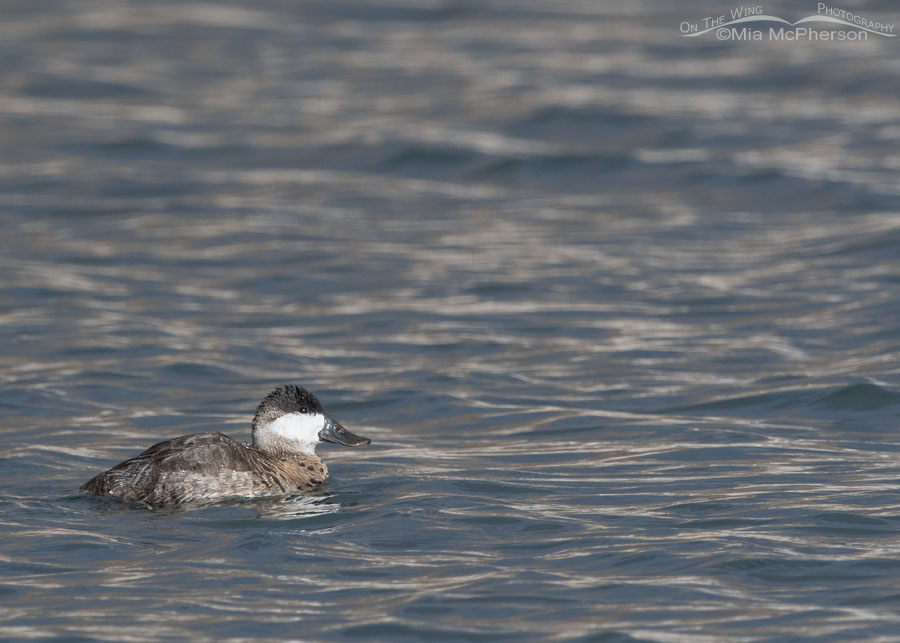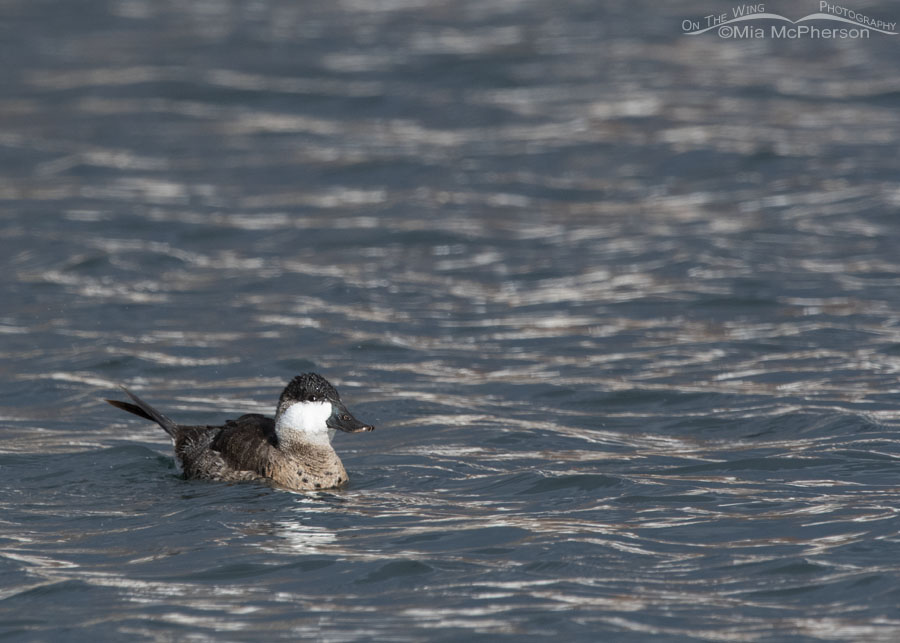Even though it was windy yesterday afternoon, I spent a few minutes with a Ruddy Duck drake in my viewfinder at my local pond. I hoped that he would get closer.
 Ruddy Duck drake on a windy afternoon – Nikon D500, tripod mounted, f9, 1/1600, ISO 1000, Nikkor 500mm VR with 1.4x TC, natural light
Ruddy Duck drake on a windy afternoon – Nikon D500, tripod mounted, f9, 1/1600, ISO 1000, Nikkor 500mm VR with 1.4x TC, natural light
Both this drake and a hen Ruddy Duck seemed to be heading towards me. I was standing behind my tripod at the edge of the pond, near some rushes.
These two small diving ducks arrived a couple of weeks ago and they might spend the winter and early spring at my local pond. The drake is in his nonbreeding plumage phase.
This duck species transitions into their breeding plumage later than most of the ducks I see. When these drakes are in breeding plumage their bills turn a bright, light blue. In both these images just a hint of blue can be seen on his bill close to his face.
 Urban drake Ruddy Duck – Nikon D500, tripod mounted, f9, 1/1600, ISO 1000, Nikkor 500mm VR with 1.4x TC, natural light
Urban drake Ruddy Duck – Nikon D500, tripod mounted, f9, 1/1600, ISO 1000, Nikkor 500mm VR with 1.4x TC, natural light
In this image I can see that this drake might be missing a few tail feathers, or rectrices, because I can only count two tail feathers.
Unfortunately for me, these ducks did not come any closer to me than what is seen in my photos. A young person fishing walked up to within 15 feet of me and cast his line directly in front of me while yelling at his father and siblings that were at least 30 feet away from his position.
The ducks appeared to be bothered by all of the noise and swam away. With my hopes for closer images of the ducks dashed, I packed up my gear and left the area too.
I hope that these ducks stick around the pond over the winter. I’d love more uninterrupted, quiet time with them.
Life is good.
Mia
Click here to see more of my Ruddy Duck photos plus facts and information on this species.


Well, you get merit points for not pushing the kid in the pond. I love these shots and your narrative about how the Ruddy Ducks bill changes to blue during breeding season. Thanks Mia.
I suspect I would run away from the young fisher and his family too.
I hope you do get more time with these handsome birds.
I wonder if it is the same couple who hung around last spring and early summer? I hope they stay this winter.